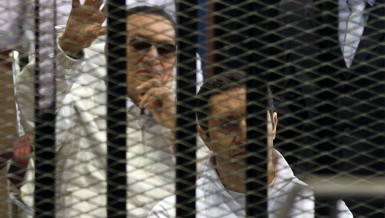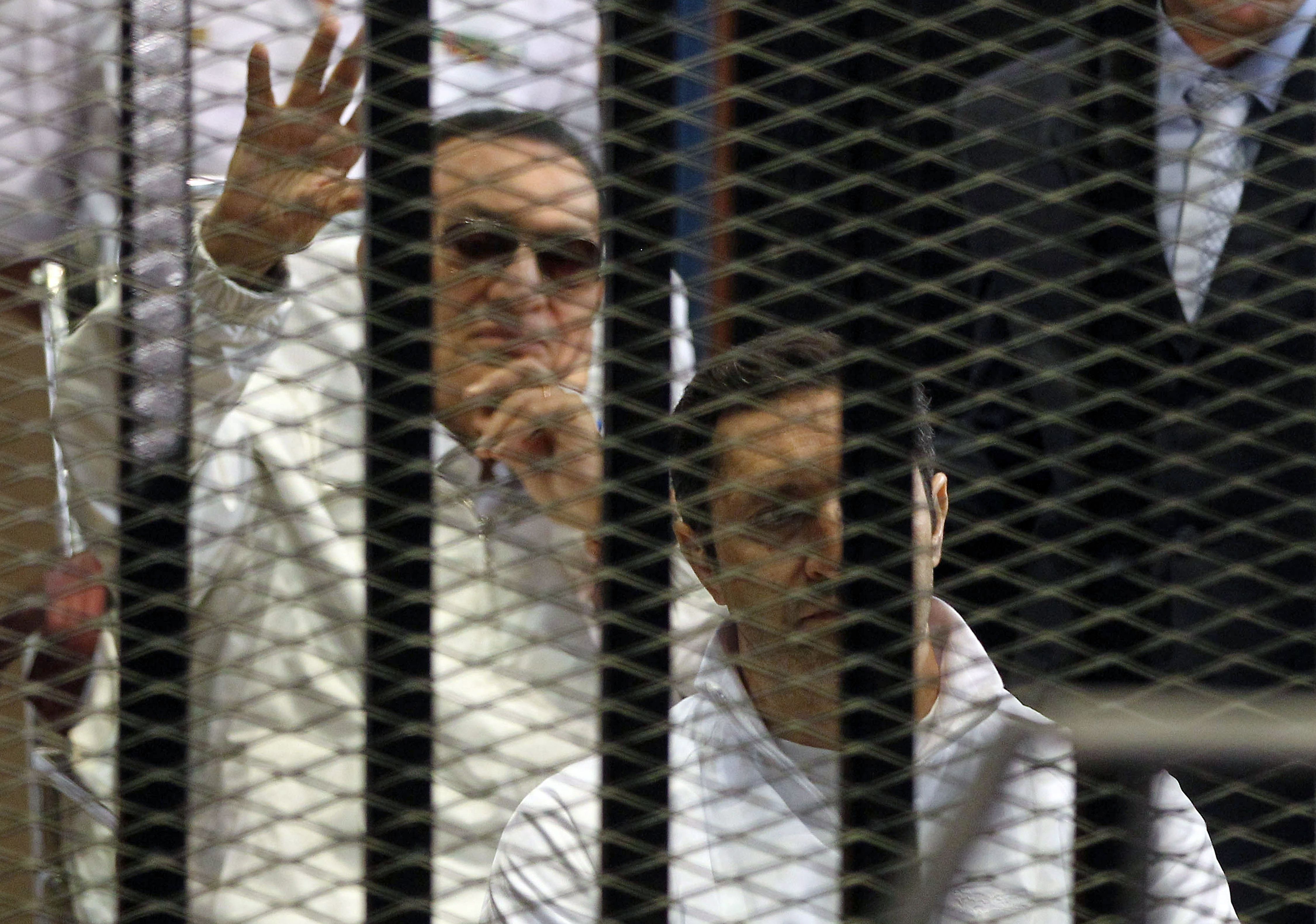
(AFP Photo)
The retrial of former president Hosni Mubarak came to an abrupt end in its first session on Saturday after presiding judge Mostafa Abdallah recused himself.
Abdallah referred the case back to the Cairo Court of Appeals which will now have to assign the case to a different bench.
The Cairo Criminal Court judge had previously ruled to acquit all 21 defendants in the Camel Battle trial in 2012 and therefore set a precedent. He therefore resigned from the case in order to dispel accusations of bias.
Mubarak is on trial for failing to protect protesters who were killed during the 25 January 2011 uprising that ousted him. He is also facing corruption charges.
He was sentenced to life in prison in June 2012 for failing to protect protesters, but was found not guilty of corruption. His Minister of Interior Habib Al-Adly was also sentenced to life in prison but his six deputies were found not guilty.
Mubarak’s sons Alaa and Gamal were found not guilty on charges of corruption but remain in custody for other charges.
Defence lawyers for Mubarak and Al-Adly appealed the verdict to the Court of Cassation and so did the public prosecution, which said new evidence had arisen. The court, the highest in Egypt, accepted both appeals and ordered a retrial.
Public prosecution spokesperson Mahmoud El-Hefnawy said that the special revolution protection prosecution office handed the court a new 700 page report presenting evidence of Mubarak and Al-Adly’s complicity in the killing of protesters.
The report also features evidence of the involvement of Al-Adly’s deputies and includes new testimonies and material from a report drafted by the fact-finding committee President Mohamed Morsi formed upon his inauguration.
New evidence building on the evidence used by prosecutors in the original trial in front of the court was also uncovered, El-Hefnawy said.
The retrial was scheduled to start on Saturday but it could now take months for the Cairo Court of Appeals to assign another judge to the case.
The former president greeted his supporters with a smile and wave as he entered the courtroom cage. Dozens of his supporters demonstrated outside the courthouse at the police academy in New Cairo demanding he be freed, while dozens of victims’ families also appeared on the scene and demanded Mubarak receive the death sentence.
He was brought into the police academy in a military helicopter from the Maadi military hospital where he has been serving his sentence.
Mubarak was scheduled to walk free on Sunday 14 April as the court did not order his detention on remand, but Prosecutor General Tala’at Abdallah ordered him detained for a further 15 days.
The detention order came as a result of investigations in a different case where the former president is charged with appropriating funds made available by the state for the upkeep of presidential palaces for personal use. Unless his detention is further renewed, however, Mubarak will be released on 29 April.
“Mubarak will not be released tomorrow. Instead he will be taken back to prison as he has a detention order and is facing charges in another case,” constitutional scholar Ragab Abdel Kareem said.
Both the defence and plaintiff lawyers demanded judge Mostafa Abdallah recuse himself and the decision was met with approval from both sides, although the timing was not.
“The bench took too long to announce it recused itself. It should have been announced a week ago instead of costing the state all this money to prepare and secure the courthouse and transport Mubarak,” added Abdel Kareem.


